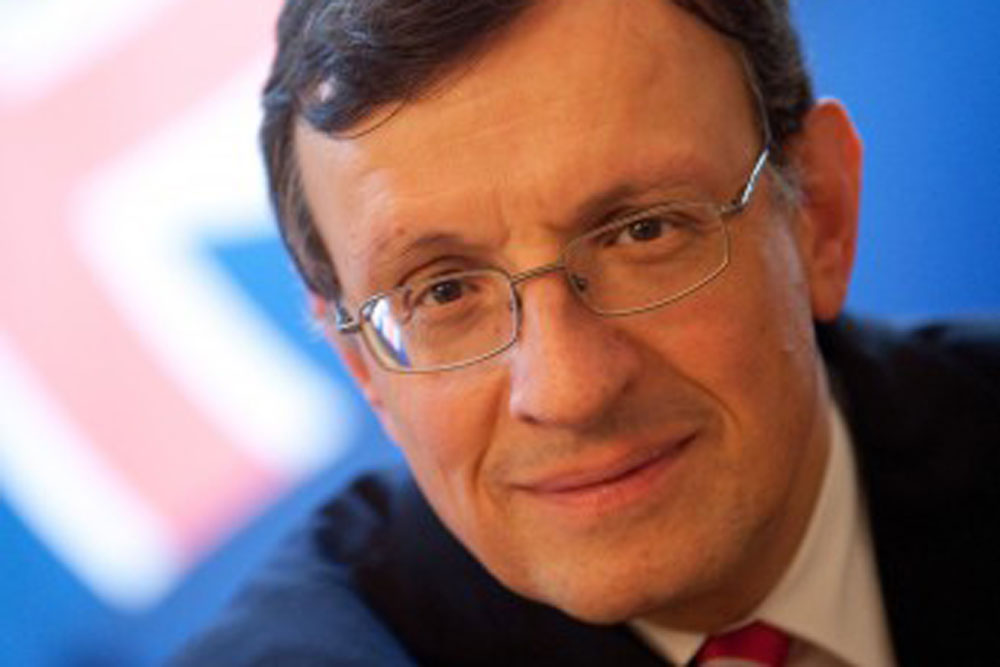Karen has invited me to contribute to the Executive Group blog series, as Chair of the Council of the University. I probably have to start by explaining what the Council is and who I am.
Council is effectively the Board of Governors of the University. Our job is to oversee the way in which the University is run – its finances, its strategy, its day-to-day management, and its public profile. The University is an educational charity, and we are its Trustees. We have to ensure that the University is meeting its legal obligations. We are also the main financial and business authority of the University. Our regulator is now the Office for Students (OfS), and we are responsible for reporting to the OfS on the University’s financial position and public benefit activity, as well as its delivery of high-quality education to students (and its successful widening of participation to include a higher proportion of students from non-traditional backgrounds).
The Vice-Chancellor and President and her two senior deputies sit on Council; there are four elected staff representatives, academic and non-academic; and two student representatives, rising to three next year. All the other members are lay, and come from a wide range of backgrounds: law, local government, the NHS, the Civil Service, banking and finance, broadcasting, consultancy, retailing, and further education. Some, but not all, are alumni. My own background is diplomacy. I was in the Foreign Office for 37 years; I was a specialist in East Asia (ending up as Ambassador to Japan) and am now retired. I’ve been Chair of Council for four years, and will stand down in 2020.
We meet five times a year: four full plenary meetings, and a more free-wheeling ‘strategy day’ in February. Some University Councils meet more often, even as much as monthly. I’m uneasy about that, because I think there is a danger of a Council slipping into habits of micro-management. It is the Executive Group’s responsibility to manage the University: it’s our job to give oversight, ask questions, approve the direction of travel, ask for things to be looked at again; and to be accountable when formal decisions are made.
In her blog on 10 October, Karen reported on our meeting the previous week, and particularly the discussion of the University’s Strategy, where we approved the broad principles but asked for a little more detail and context as the implementation is carried forward.
We also had reports on two difficult areas: student recruitment and the National Student Survey. On the former, the University has not met its targets in 2018. This will have implications for our budget, because there will be a corresponding drop in fee income, and we shall return to this in our November meeting. In the NSS, satisfaction ratings have dropped across all areas in recent years, which in turn contributes to our falling rank in the national league tables. The job of Council is to understand what the survey tells us about how we can improve – the key themes emerging from student feedback are consistency and care – to satisfy itself about how the University is managing this process, and to question, challenge and support as necessary. We aren’t alone in facing problems of this kind: our peer group of universities is in a similar position, and Kent has done marginally less badly than others. But there are clearly problems to tackle and challenges to face. I was grateful to be able to sit in on two of April McMahon’s meetings with Schools to discuss how to follow up the Survey, last month: this gave me a very good sense of the questions under discussion.
Our November meeting will have a very heavy agenda, as is always the case when we are on the verge of submitting the annual financial statements to our regulator. The Council’s Finance and Resources Committee will be going through the detail of these at its meeting in mid-November, but Council has to approve the reports before they go to the auditors and the OfS. We will be considering the annual returns we have to make to the OfS that give assurances about the academic work of the University (which of course is the responsibility of Senate rather than Council). And the agenda will also include an annual report on how we implement the Prevent duty; the detailed projects being considered by Finance and Resources Committee; how effectively we are managing our risks; and how we are getting on against our Key Performance Indicators. And much else besides.
I probably don’t make Council sound very exciting. The technical responsibilities of serving on a board rarely are. But beneath the detail are really important questions about how we sustain the culture of the University and equip it to face future challenges. I enjoy being Chair of the Council at Kent. Firstly, it’s a great privilege to be associated with such a fine institution. Secondly, it’s a pleasure to be part of a group of individuals, from within and outside the University, dedicated to the process of strengthening the institution yet further. I am constantly learning new things and understanding new concepts. And thirdly, it’s an exceptionally bracing time to be working in higher education – as the sector faces financial uncertainty, the impact of Brexit, increased competition both nationally and internationally, and political challenges from both left and right. I’m looking forward enormously to the coming academic year and deepening my contacts with, and knowledge of, the University.
Sir David Warren, Chair of University Council

